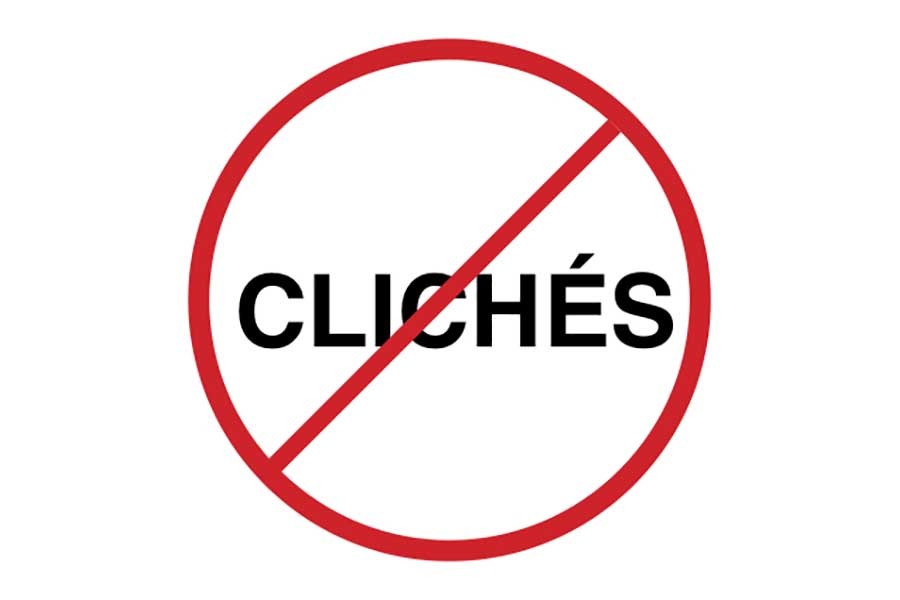
Published :
Updated :

Writers overly careful about their style of expression remain too cautious, that they might be lured into clichés. In reality they dread this stylistic drawback, so much so that the particular aversion at times comes down to the level of obsession. Fastidiousness with how one expresses oneself is expected of a good author. But it had better not cross limits of normalcy. However, in spite of all these reservations, everything cliché-ridden, from writing style to spoken words, ought to be avoided. Things studded with cliché do not pique the masses. Most of them are found inured to the hackneyed styles. The problem lies with the style-conscious people.
As the multitude does not bother to tell a cliché from something fresh, used and overused things dominate the social spectacles. We live in a time which is used to watching people in a rat race. Everybody is on a rush. In such an endless competition, people have little time to pause and check on the quality of the visuals fleeting by. But clichés do matter. To the discerning segments of people, overused spectacles, expressions and thoughts stand for low standard. They normally spark annoyance; and at the end of the day they leave a bad taste in the mouth. They might be interpreted as a disservice to the youths and the blossoming mind. It's because, with prolonged exposures to clichés the inherent taste and mental frame of a generation turns coarse. These may not stand in the way of the success of a business or a creative enterprise. But clichés blunt human sensitivity. In the long run, they exact a toll on societies, or communities, by making them put up with whatever they are offered. People, thus, lose the urge and strength to protest. Growing sick and tired of recurrent things speaks of one's otherwise alert mind as well as discomfort with the existential state. The person, in essence, here is one who loves to hear a new pattern of warble at daybreak. A number of people hardly feel tired upon hearing stale and oft-repeated jokes. They cannot also identify cliché subjects and ideas.
Attitudes to hackneyed things vary from community to community and society to society. Puzzlingly, advanced nations are normally found getting irritated with cliché happenings faster than the backward ones. It points to the fact that the more advanced a nation, the more eager it is to keep moving. The better positioned people are averse to remaining stagnant; being in the status quo does not cause noticeable unease to the laymen. They remain content with whatever is handed out to them. They lack the drive or efforts to raise their demand. Differently speaking, these people are comfortable with their humble status. The issue of cliché enters here. It means life can go on without bothering about changes or welcoming the new. Ironically, clichés do not leave us completely. Even at this point of the discourse, one might feel tempted to turn to the time-worn phrase of "saying or doing something over and over again."
The dominance of clichés can be felt more pungently in the day-to-day mundane world than in the intangible one characterised by abstractions. As a ready instance, one can call in some stock movie shots from Bangladesh cinema. Films have been showing for decades the carefree heroes and heroines walking along railway tracks separately yet stretched out arms touching each other in remote areas. Intimacy is also shown with pairs sitting together in the open country boats. These intimate scenes are absurd in real Bangladesh. But these arty and cliché sequences keep recurring in the country's movies. Few in the audiences object. All this speaks of the morbid force of clichés.


 For all latest news, follow The Financial Express Google News channel.
For all latest news, follow The Financial Express Google News channel.